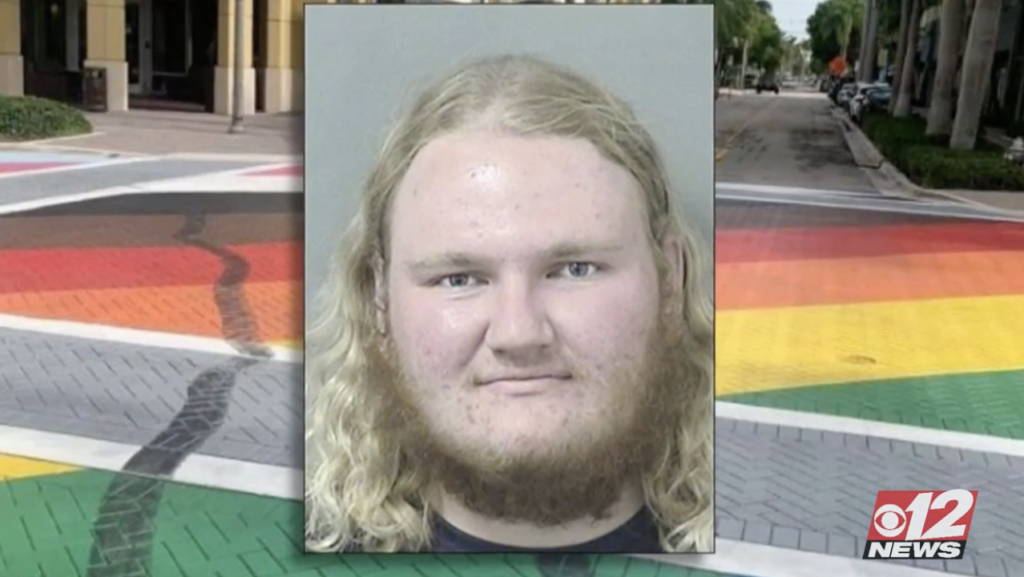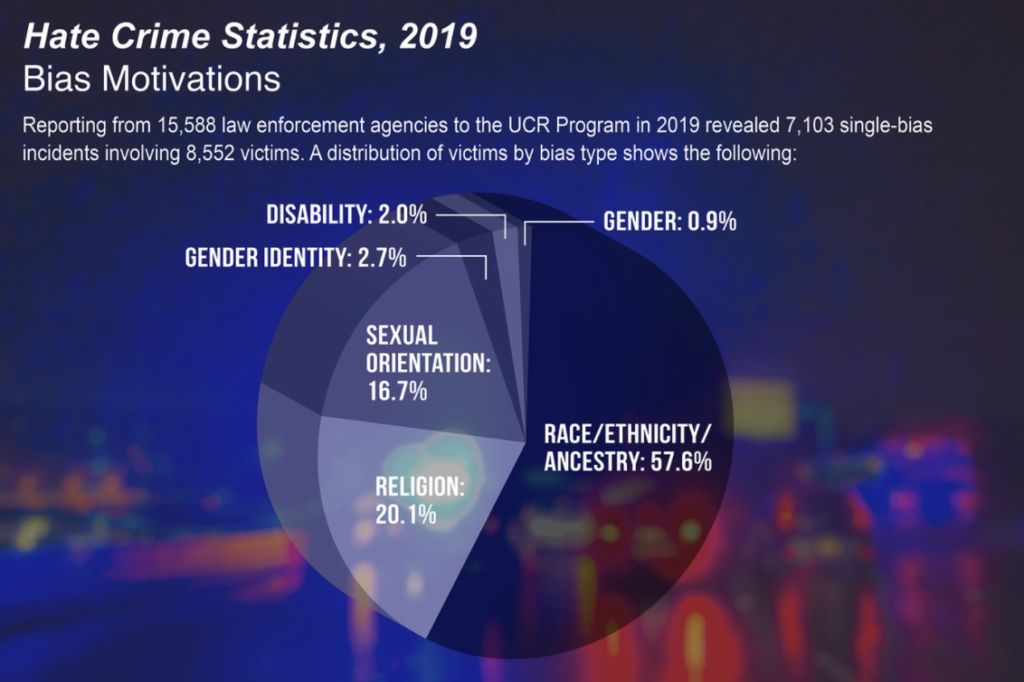Four Democrat Florida legislators are hoping to update the state’s 30-year-old hate crime law this session, adding to the list of potential victims.
Sen. Tina Polsky (D-Boca Raton) and State Rep. Emily Slosberg (D-Boca Raton) want to include government, public and private organizations to the list. Sen. Lori Berman (D-Delray Beach) and State Rep. Joe Geller (D-Aventura) want the law — which enhances penalties for crimes related to prejudice — to recognize physical disabilities, gender and gender identity as hate crime motivators.
Senate Bill 1208 and House Bill 833, filed Thursday by Polsky and Slosberg, follow the vandalism of a public intersection in Delray Beach painted with the new Pride flag in June and dedicated to the 49 people murdered in the massacre at Pulse Nightclub in Orlando five years earlier, which was a hate crime attack on both the LGBTQ community and Hispanics.
Someone in a pick up truck was seen and video recorded intentionally leaving long skid marks along the width of the intersection.
Very quickly, Alexander Jerich, 20, turned himself into the Delray Beach Police Department. He was charged with criminal mischief, reckless driving and evidence of prejudice — the latter of which had to be dropped.

Currently, the law doesn’t allow authorities to pursue hate crime enhancements against Jerich for defacing the intersection because cities have no standing as victims of crimes or misdeeds motivated by race, ethnicity, religion, sexual orientation, age or disability.
Palm Beach County State Attorney Dave Aronberg has said that he didn’t want to drop the hate crime enhancement — especially after Jerich was overheard saying he wanted to “tear up that gay intersection,” but that he had no choice under the current law.
Read related: Legislators file appeal of HB1 anti-free speech bill passed post BLM protests
Aronberg said Monday that these bills “will close a glaring loophole in state law that allows defendants to avoid hate crime charges even though their actions were motivated by prejudice.
“This bill gives prosecutors the tools needed to hold fully accountable those who harm our community with hateful conduct,” Aronberg said.
Senate Bill 1208 and House Bill 883 would change that.
“When acts of hate are perpetrated against individuals, we pursue and reprimand those responsible in order to serve justice and reaffirm the human dignity of the victims,” Polsky said in a statement. “When acts of hate are perpetrated against public property or government entities, we must do the same.

“This legislation allows law enforcement officials to seek full and appropriate redress for expressions of hate which have no place in Florida.”
Added Slosberg: “To further unity and acceptance in the community, we need to deter crimes, particularly those that show bias. This legislation goes a long way towards that end.”
Orlando Gonzales, executive director at SAVE, said the bill will address a disturbing trend.
“We have seen over the past 5 years that individuals emboldened by bigotry strike against government and public property often as a first step before they take action and harm people,” Gonzales told Ladra. “We saw this in Charlottesville, the US Capital, and now here in our backyard in Delray Beach.
“It is sad that in 2021, we are still having to advocate for legislation that would protect people from acts of bigotry.”
Senate Bill 308 and House Bill 111, filed by Berman and Geller in September, closes other loopholes by changing or expanding the definition of “disabled” and adding gender and gender identity to the list of protected status.
Ladra had no idea that gender wasn’t already a protected status. That seems like a no brainer, right?
“The guy that shot up the yoga shop because he wanted to kill women? Had he lived, he could not have been prosecuted for that as a hate crime,” Geller said, referring to the 2018 shooting of six women, two fatally, at a Tallahassee yoga studio.

According to the most recent FBI data, hate crimes based on gender, gender identity and disability have increased across the U.S. by more than 500% since 2011, from 64 incidents in 2011 to 390 in 2020. In 2019, these victims made up 10% of all the hate crimes across the country.
According to the Florida Attorney General, hate crimes based on sexual orientation account for more than 20% of all hate crimes — that is one in five — and is the second category, surpassing religion. Race, of course, is still the most common motivation.
Hate crimes have increased dramatically among transgender men and women, according to Equality Florida.
Read related: Human rights transgender debate becomes bathroom joke
And, Disability Rights Florida Senior Public Policy Analyst Olivia Babis has said that 72% of people with physical disabilities experience some form of violence in their lifetime, frequently at the hands of a care provider.
In addition to adding victim classifications to the list of the protected, these bills also would include “association with” and “mixed motive” provisions, which are also gaps in the current law.
An “association with” crime is when someone is victimized at a park or retail store, for example, for being with friends who are Black or Hispanic or gay. And with the addition of five words — “in whole or in part” — adds “mixed motive” hate crimes, which is are when someone yells racial or homophobic slurs at the same time as committing another crime, such as rape or robbery. Sort of like the felony murder law.

“We are not punishing speech, much less thought,” Geller told Ladra. “You can’t be punished for screaming epithets or being racist. You have to take action. It only enhances the level of penalty, but it is not what you think or what you say it is what you do as you are saying it.”
Seems like a bill that everyone can support, right. But for some reason this is the fourth or fifth time that Geller has attempted to pass this legislation, which is also sponsored by the Anti-Defamation League’s Florida Hate Crime Coalition.
Last session, it had some bipartisan support. But Senate President Wilton Simpson killed the bill by sending it to the Appropriations Committee with concerns about the “potential fiscal impact.”
Advocates say there is no potential fiscal impact.
Geller was more polite about it.
“There are some people who think it doesn’t matter why you did what you did. They say punish just the conduct. I don’t agree,” Geller said. “I think it’s worse if it’s motivated by the fact that they are perceived to be a member of a subsect group.”
These lawmakers just want to close these few loopholes in the existing law.
“We already have the law. We need to fix the law,” Geller said.

